7 min read
PETA fieldworkers do everything they can to help animals in need: We provide sick and injured animals with veterinary care, organize or participate in community events to raise awareness and promote empathy, and so much more. See five ways the Community Animal Project (CAP) helped animals from January to March 2024 and find out how you can help support this vital work.
5 Ways PETA’s Community Animal Project Helps Animals
1. We Arranged Spay/Neuter Appointments for Thousands
CAP Transported 246 Animals to and from Their Spay/Neuter Appointments
Pictured with his guardian Kevin, a veteran, Bruno was just one of 2,920 animals sterilized on PETA’s mobile clinics in early 2024.
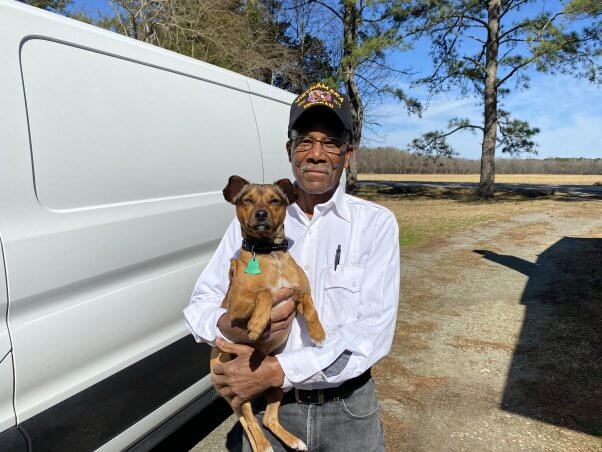
Meeka, Stella, and Trashy were among the 246 animals PETA’s Community Animal Project fieldworkers transported for free to and from their no-cost spay/neuter appointments.
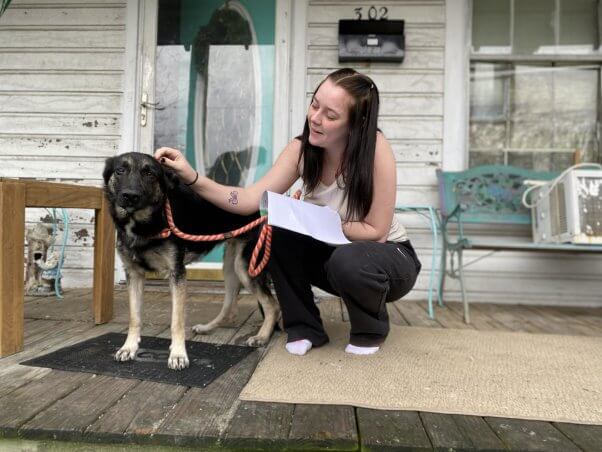
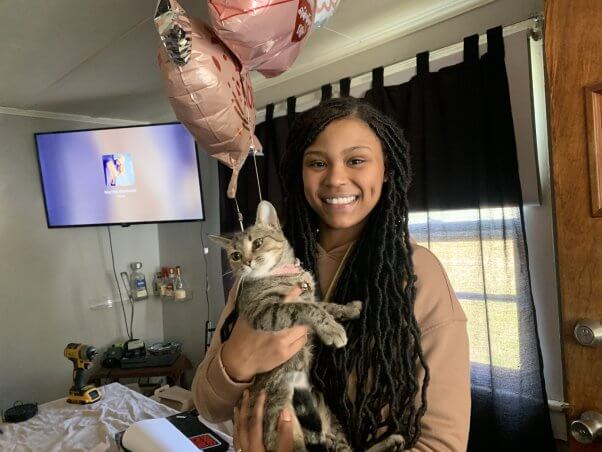
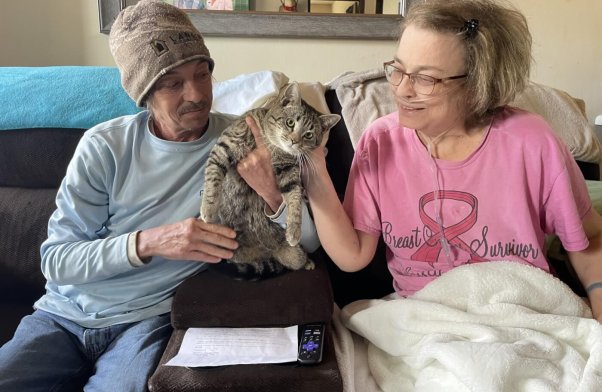
Our Mobile Clinics Division Hosted a Successful Spay/Neuter Event
PETA partnered with the local animal control department in Gloucester County, Virginia, and spayed or neutered 245 cats and dogs over the course of three days in one month. We operated dual clinics on two of the days and collected food donations for low-income residents in our field service areas. Our Mobile Clinics Division has spayed or neutered 227,262 animals since it was established in 2001.
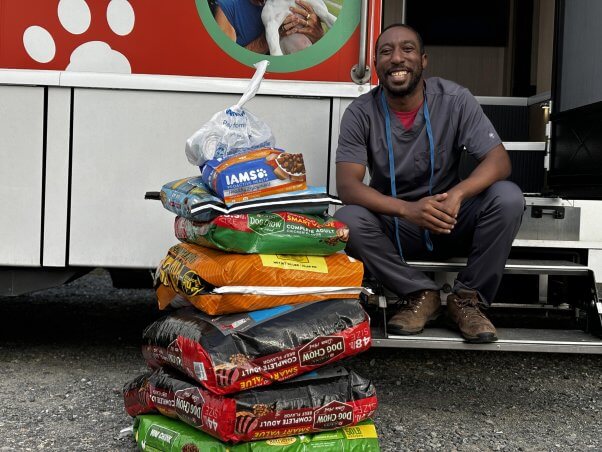
Spay-a-Thon in Puerto Rico Helped Hundreds of Animals
We partnered again with the Humane Society of Puerto Rico to host a two-day spay/neuter event in the underserved community of Guaynabo, Puerto Rico. We sterilized and vaccinated 206 animals and provided valuable training and support to local shelter staff, who closely observed our veterinary clinic staff in action.
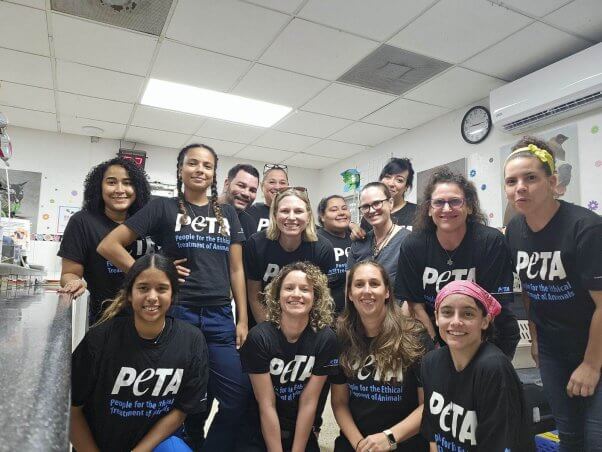
2. We Engaged With Our Community to Help Teach Empathy for Animals
Kids at Our Events Received Animal-Friendly Books
Through our Barks & Books program, we continued to distribute children’s books with animal-friendly themes to kids we met in the field and at our spay/neuter clinics.
Pups on the Plaza Was a Success!
We hosted our annual Pups on the Plaza breakfast event outside Virginia’s General Assembly Building, where legislators and staff enjoyed delicious vegan treats and wonderful dogs received lots of attention and affection from an adoring crowd.
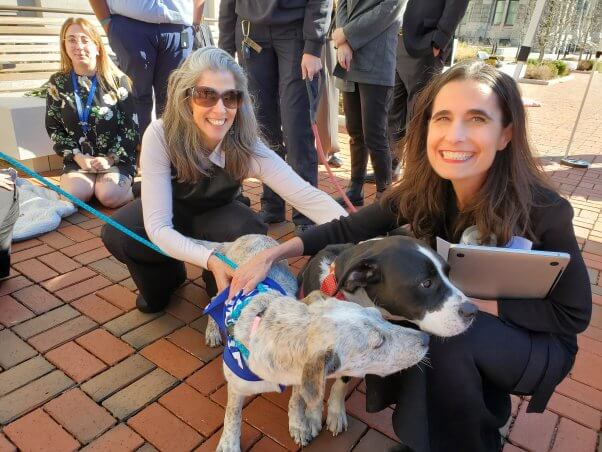
3. We Helped People Keep and Care For Their Animals
Chloe and Zoey Got Life-Changing Makeovers
One of the 505 requests for assistance that PETA received came from Chloe and Zoey’s guardians, who couldn’t afford the cost of grooming, so the dogs became dangerously matted. Matted fur pulls the skin, makes movement painful, and can trap moisture and prevent air circulation, which can lead to skin infections and even maggot afflictions. The staff on our mobile clinics sedated and groomed the pair at no charge to their guardians. We assisted 194 families like Chloe and Zoey’s in keeping their animal companions.
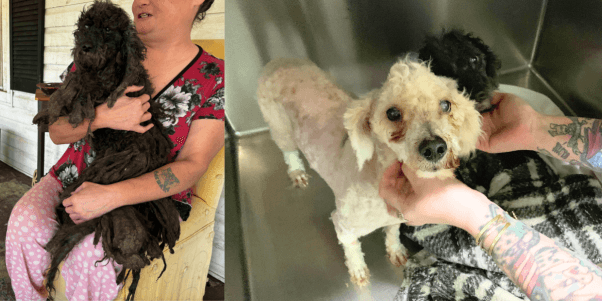
Guapo Got a New House
PETA helped protect dogs from the cold weather. One of them, Guapo, had been kept chained or penned outdoors 24/7.
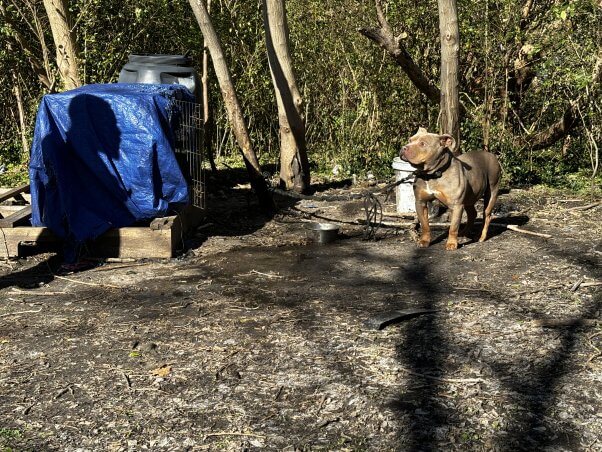
Since his guardians refused to bring him indoors, we provided him with a sturdy wooden doghouse and insulating straw bedding. We delivered custom-built, insulated doghouses to Guapo and 32 other dogs kept outdoors in all weather extremes. We also ensured that they had food, water, and treatment for parasites, and we replaced short, heavy chains with 15-foot lightweight tie-outs.
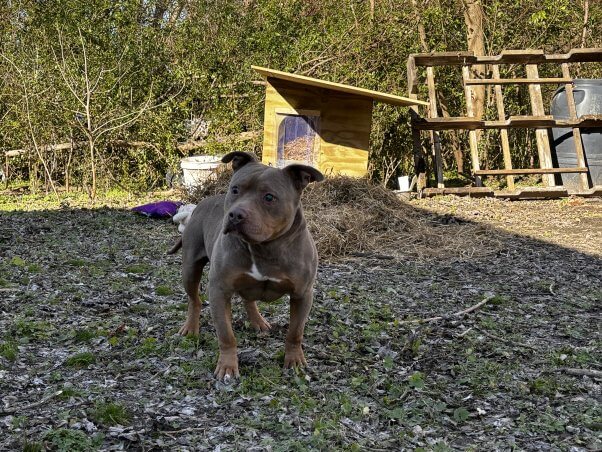
4. We Provided Suffering Animals With Free End-of-Life Services
Venom Was Immobile and Suffering from a Congenital Heart Defect
When a young dog named Venom became immobile and listless, his guardian contacted us. His abdomen was severely distended because of a congenital heart defect and suspected bone cancer, so his guardian brought him to PETA’s shelter for free end-of-life services.
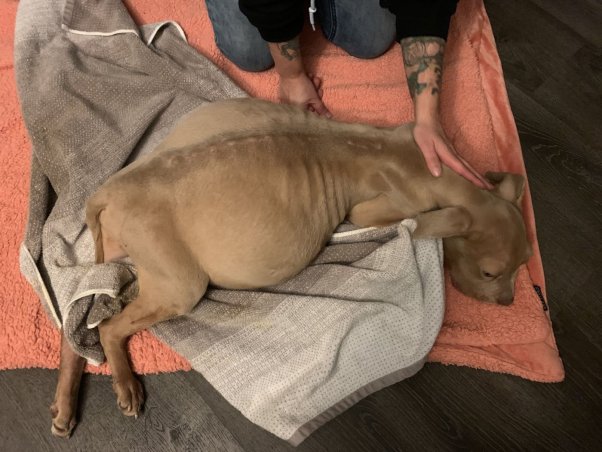
Venom was one of the 167 animals we euthanized at no cost to families who couldn’t afford this vital humane service. His guardians filled out postcards asking their state legislators to safeguard our ability to offer free end-of-life relief. From January to March, 1,007 of our constituent families sent postcards to their elected officials in support of our services, including compassionate euthanasia.
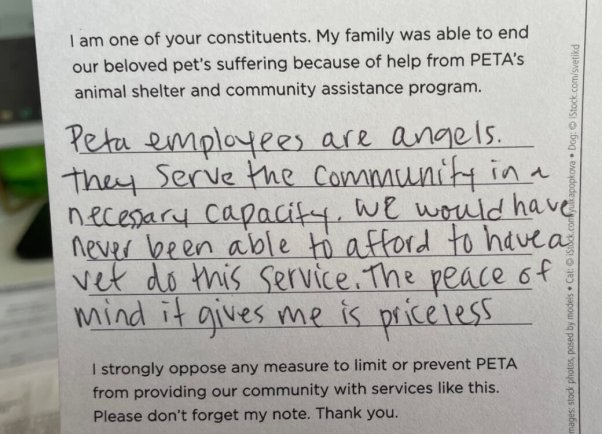
Cats Who Are Forced to Live Outside Often Suffer Painful Deaths
At the request of a small rural town without sufficient resources or even an animal control officer, we rushed out to pick up a horrifically injured homeless cat who had been hit by a car and was found in the road with a ruptured eye and broken back legs. He was among the 233 free-roaming cats suffering from conditions that included advanced upper respiratory infections, blindness, broken bones, necrotic wounds, and traumatic injuries.
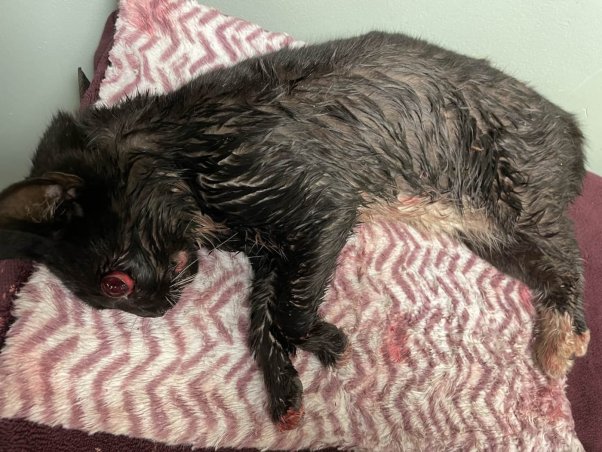
Abandoned and free-roaming cats often endure miserable lives, suffering from thirst, hunger, and exposure to harsh weather before dying due to illness, injury, starvation, human cruelty, or any number of other grisly causes. Cats forced to fend for themselves outdoors typically die before they’re 5 years old, while cats kept safe inside live, on average, 12 to 20 years. If you’re a cat guardian, keep them safe: Always spay/neuter and keep your feline friend indoors.
5. We Helped Animals Find Loving Homes
PETA Found Purrfect Homes for Love and Rose, Figgy, and Mariah

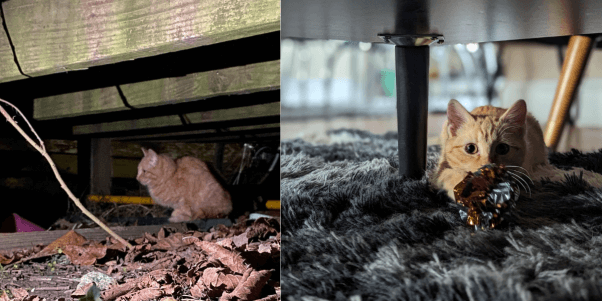
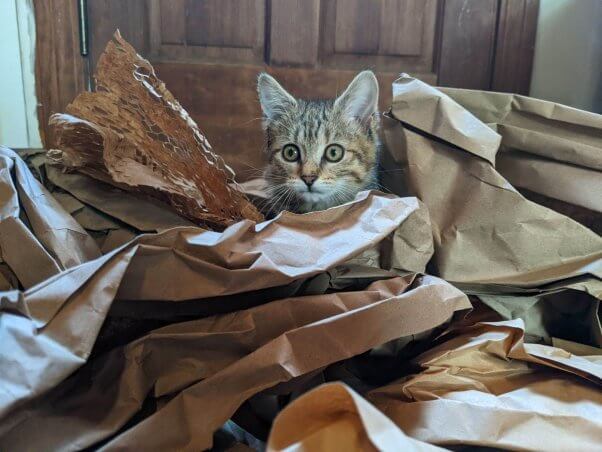
We also transferred 117 companion animals to our shelter partners for adoption, including Jacko, Rina, and three puppies who had been kept outdoors:
Jacko Needed Help
We compelled law-enforcement officials to seize Jacko, an emaciated dog whose owner refused to provide him with veterinary care. Once he had recovered at a local shelter, he was transferred to Reba’s Rescue, where he was adopted.
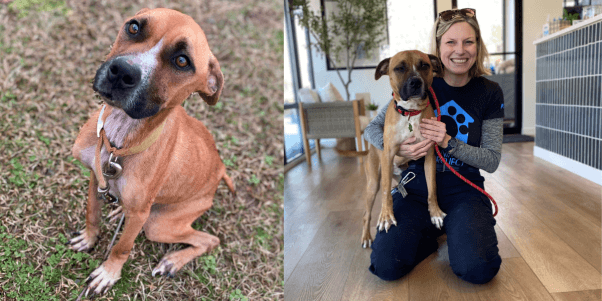
Rina Was Living in Filth Before PETA Stepped In
We secured the relinquishment of Rina, a puppy we found covered with mud on a wet, cold day. We bathed her, and after she had spent her first night warm and cozy indoors, we transferred her to the Chesapeake Humane Society, where she was adopted.
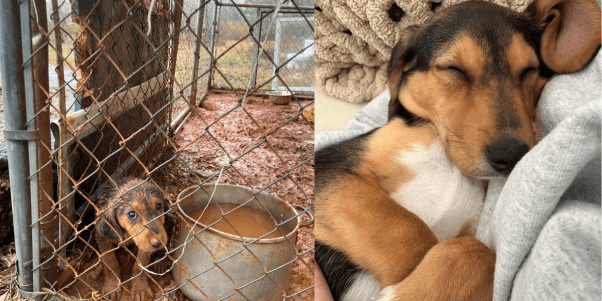
Teddy, Stella, and Puppy Were Forced to Live Outside in Freezing Temperatures
Puppies Teddy, Stella, and Puppy were all kept chained or penned outdoors, even when temperatures dropped well below freezing. We secured their relinquishment and transferred them to placement partners for a chance at adoption.
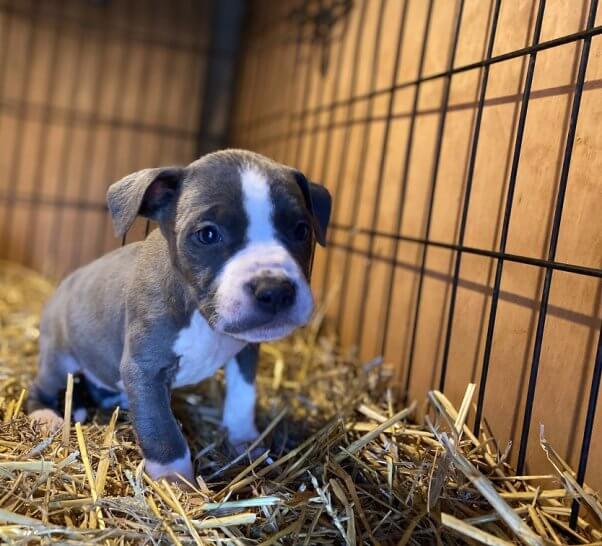
How YOU Can Help Us Help Animals
Please support PETA fieldworkers’ vital mission to care for “backyard dogs” with a generous donation. You can also advocate for tethering bans in your community, joining thousands of other caring individuals across the U.S., and work with elected representatives to help pass ordinances that ban or restrict chaining. To get started, see what current legislation on tethering dogs exists in your community.
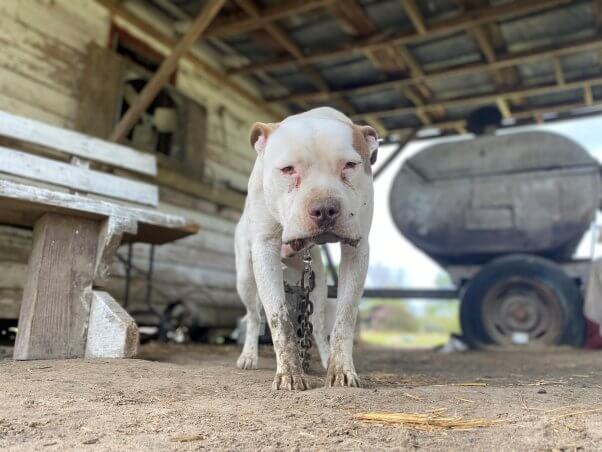
Dogs should never be left outside unattended, but when they’re outside and deprived of access to water, food, or shelter, the situation becomes an emergency—and local authorities should be contacted immediately. If they’re unresponsive, contact PETA for help. Anyone who leaves animals outside to suffer in severe weather may face criminal charges. Dogs’ well-being—even their lives—could depend on you.
